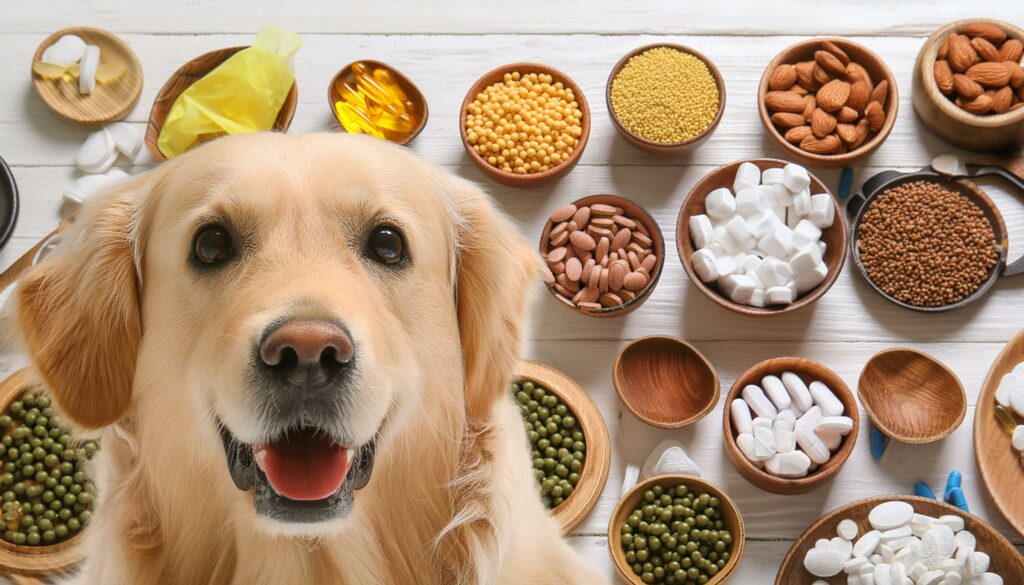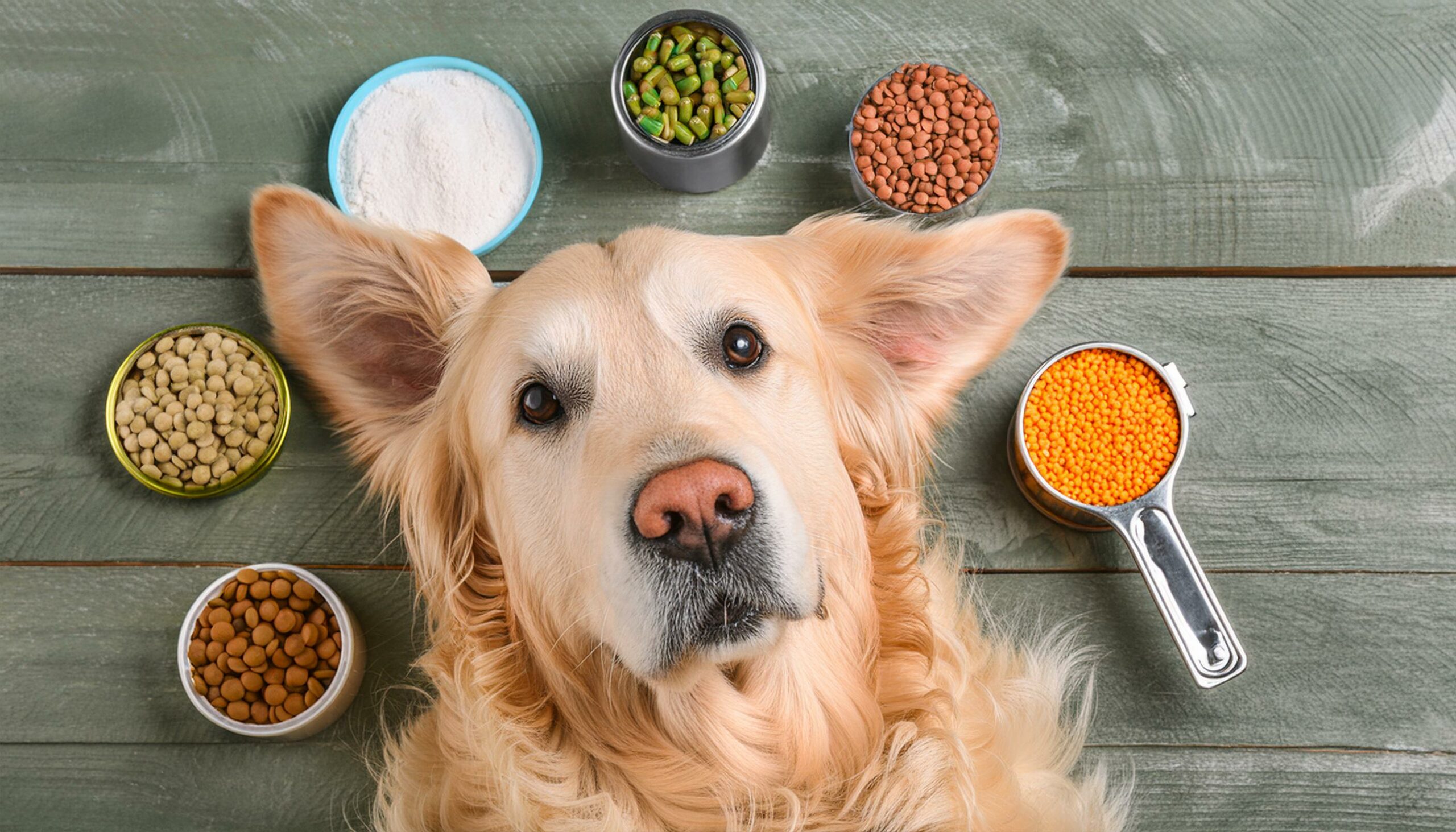1. Introduction to Golden Retrievers
Golden Retrievers are renowned for their friendly and affectionate nature, making them one of the most popular dog breeds globally. With their gentle temperament and loyalty, they often become cherished members of families. As responsible pet owners, it’s crucial to ensure their health and well-being, and a significant aspect of that is providing them with a nutritious diet.
2. Understanding the Nutritional Needs of Golden Retrievers
Importance of a Balanced Diet
A balanced diet is paramount for the overall health and vitality of golden retrievers. It encompasses a careful combination of essential nutrients to support their growth, energy levels, and immune system.
Key Nutrients for Golden Retrievers
Golden Retrievers require specific nutrients to thrive, including high-quality proteins for muscle development, omega-3 fatty acids for healthy skin and coat, carbohydrates for energy, and various vitamins and minerals to support overall health.
3. Best Food Options for Golden Retrievers
Commercial Dog Food Brands
Numerous reputable commercial dog food brands offer specially formulated diets for golden retrievers. These foods are meticulously crafted to meet the nutritional requirements of the breed, providing a convenient and balanced option for pet owners. When selecting commercial dog food, look for products that list meat as the primary ingredient and avoid those containing fillers like corn or wheat.
Homemade Diets
Some pet owners prefer to prepare homemade meals for their golden retrievers, allowing them greater control over ingredients and quality. Homemade diets can be tailored to meet specific dietary needs and preferences, providing a fresh and potentially more natural alternative to commercial dog food. However, it’s essential to ensure homemade diets are nutritionally balanced and meet all of the dog’s dietary requirements.
4. How to Choose the Right Food for Your Golden Retriever
Age and Life Stage
Golden retrievers have distinct nutritional needs at various life stages, from puppyhood to adulthood and senior years. It’s crucial to select a food that is appropriate for your dog’s age and life stage to ensure they receive the necessary nutrients for growth, development, and maintenance.
Activity Level
Consider your golden retriever’s activity level when choosing their food. Active dogs may require diets higher in calories and protein to support their energy needs, while less active dogs may benefit from lower-calorie formulas to prevent weight gain.
Health Considerations
Take into account any health issues or allergies your golden retriever may have when selecting their food. Certain medical conditions may require specific dietary considerations, so it’s essential to consult with your veterinarian for personalized recommendations.

5. Feeding Guidelines for Golden Retrievers
Portion Control
Maintaining proper portion control is vital to prevent overfeeding and obesity in golden retrievers. Follow the feeding guidelines provided by the food manufacturer based on your dog’s weight, age, and activity level.
Feeding Frequency
Most adult golden retrievers thrive on a feeding schedule of two meals per day, while puppies may require more frequent feedings to support their rapid growth and development. Consistency in feeding times helps regulate their metabolism and prevents digestive issues.
Treats and Supplements
Limit treats and supplements to prevent nutritional imbalances in your golden retriever’s diet. Choose healthy, natural treats in moderation, and consult with your veterinarian before adding any supplements to ensure they are safe and beneficial.
6. Tips for Transitioning Your Golden Retriever to a New Diet
When transitioning your golden retriever to a new diet, do so gradually to minimize digestive upset. Start by mixing small amounts of the new food with their current food and gradually increase the proportion over several days until they are fully transitioned.
7. Common Mistakes to Avoid in Golden Retriever Nutrition
Avoid common mistakes in golden retriever nutrition, such as feeding table scraps or human foods that may be harmful to their health. Stick to a balanced diet formulated specifically for dogs to ensure they receive all the nutrients they need without any potential risks.
8. Conclusion
Choosing the best food for your golden retriever is essential for their health, happiness, and longevity. Whether you opt for commercial dog food or homemade meals, prioritize quality ingredients and tailor their diet to meet their individual needs. By understanding their nutritional requirements and following feeding guidelines, you can ensure your golden retriever thrives on a diet that nourishes both their body and soul.
9. FAQs:
What are the essential nutrients for golden retrievers?
Golden Retrievers require a balanced diet consisting of proteins, carbohydrates, fats, vitamins, and minerals. Key nutrients include protein for muscle development, omega-3 fatty acids for healthy skin and coat, and glucosamine for joint health.
Can golden retrievers eat human food?
While some human foods are safe for golden retrievers in moderation, many can be harmful. Avoid feeding your dog chocolate, grapes, onions, garlic, and foods high in fat or salt.
How often should I feed my golden retriever?
Most adult golden retrievers do well with two meals a day, while puppies may require more frequent feedings. Stick to a consistent feeding schedule to maintain digestive health.
Are there any foods that golden retrievers should avoid?
Yes, golden retrievers should avoid certain foods that can be toxic to them, such as chocolate, grapes, onions, garlic, and foods high in fat or salt.
Should I consult a veterinarian before changing my golden retriever’s diet?
Yes, it’s always a good idea to consult with your veterinarian before making any significant changes to your dog’s diet. They can provide personalized recommendations based on your dog’s age, health, and dietary needs.
